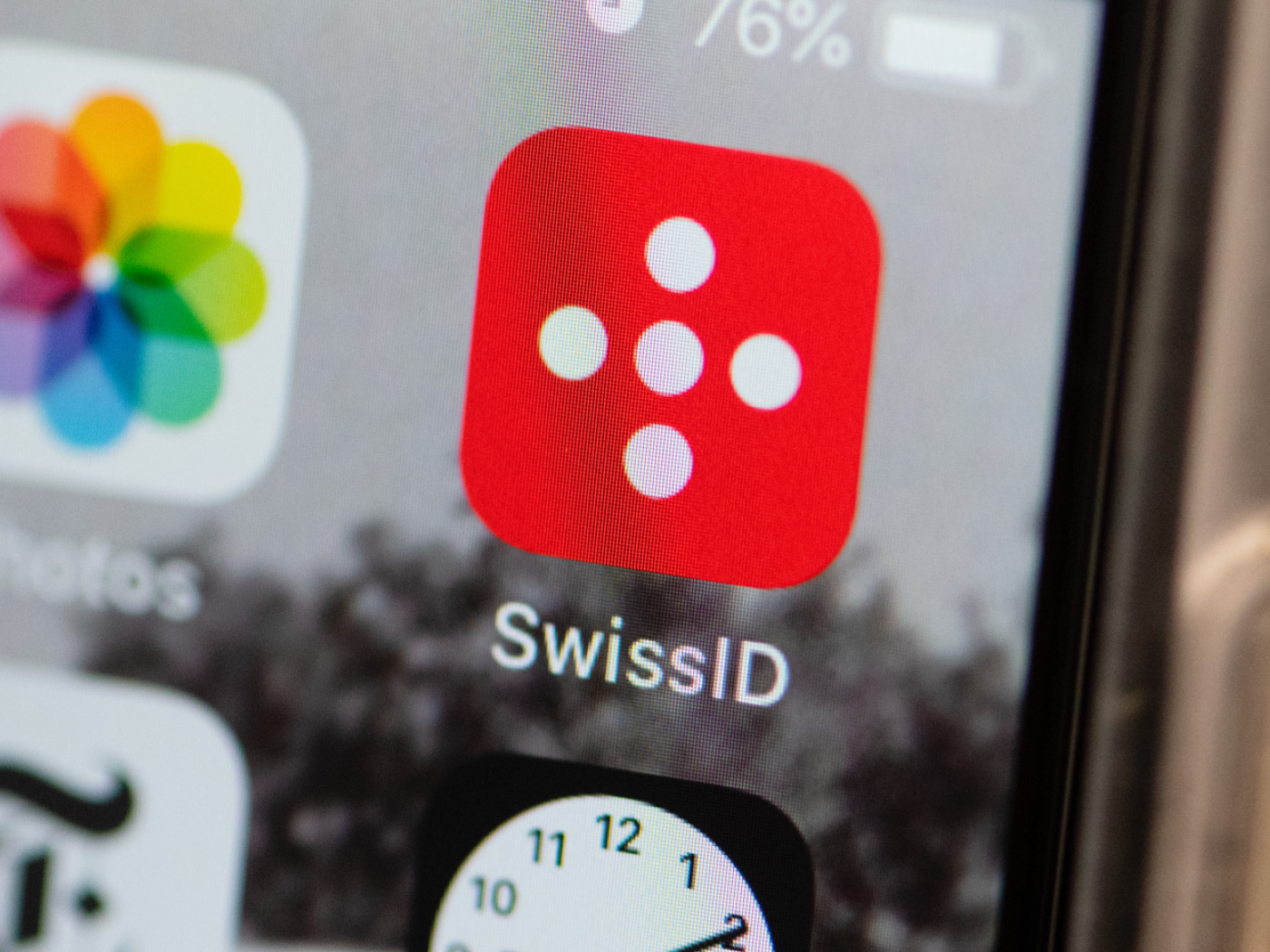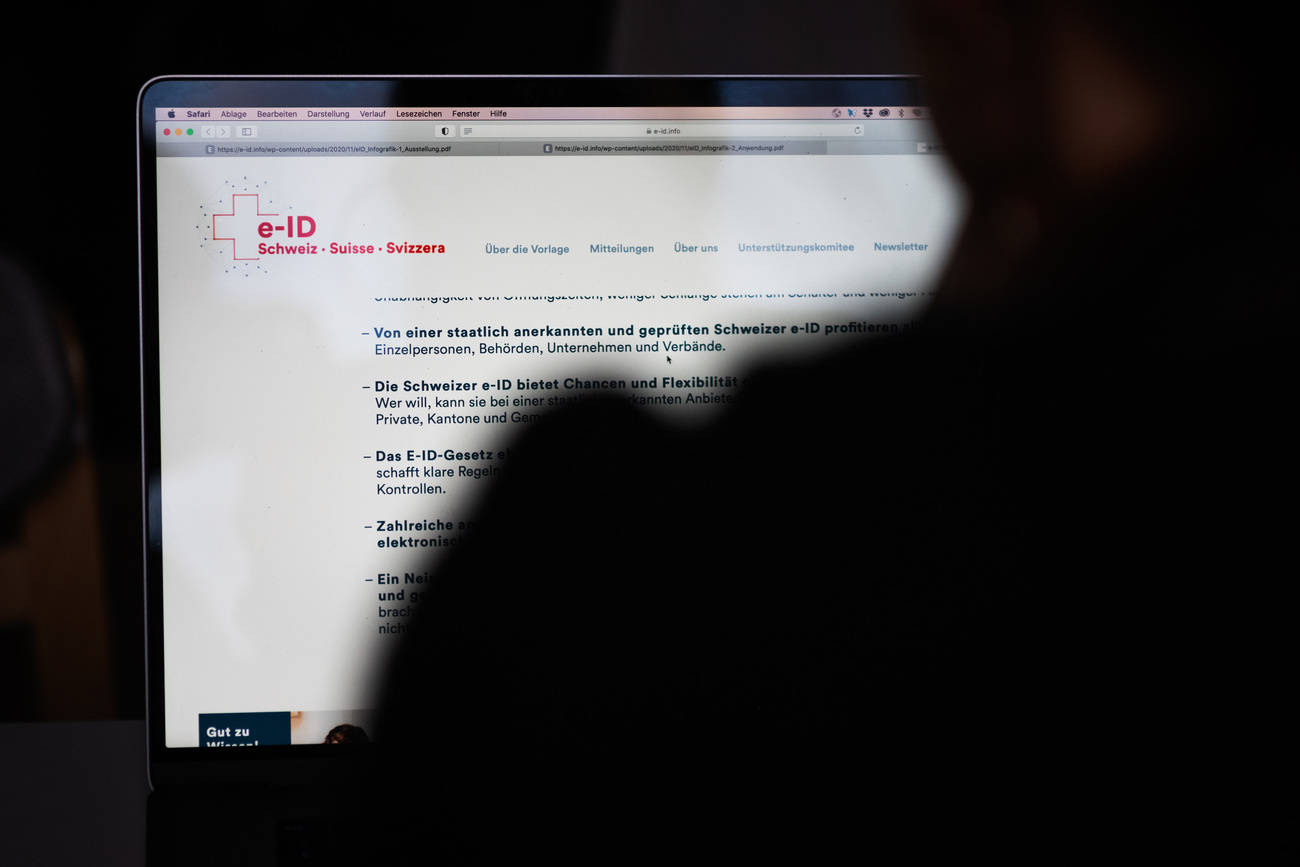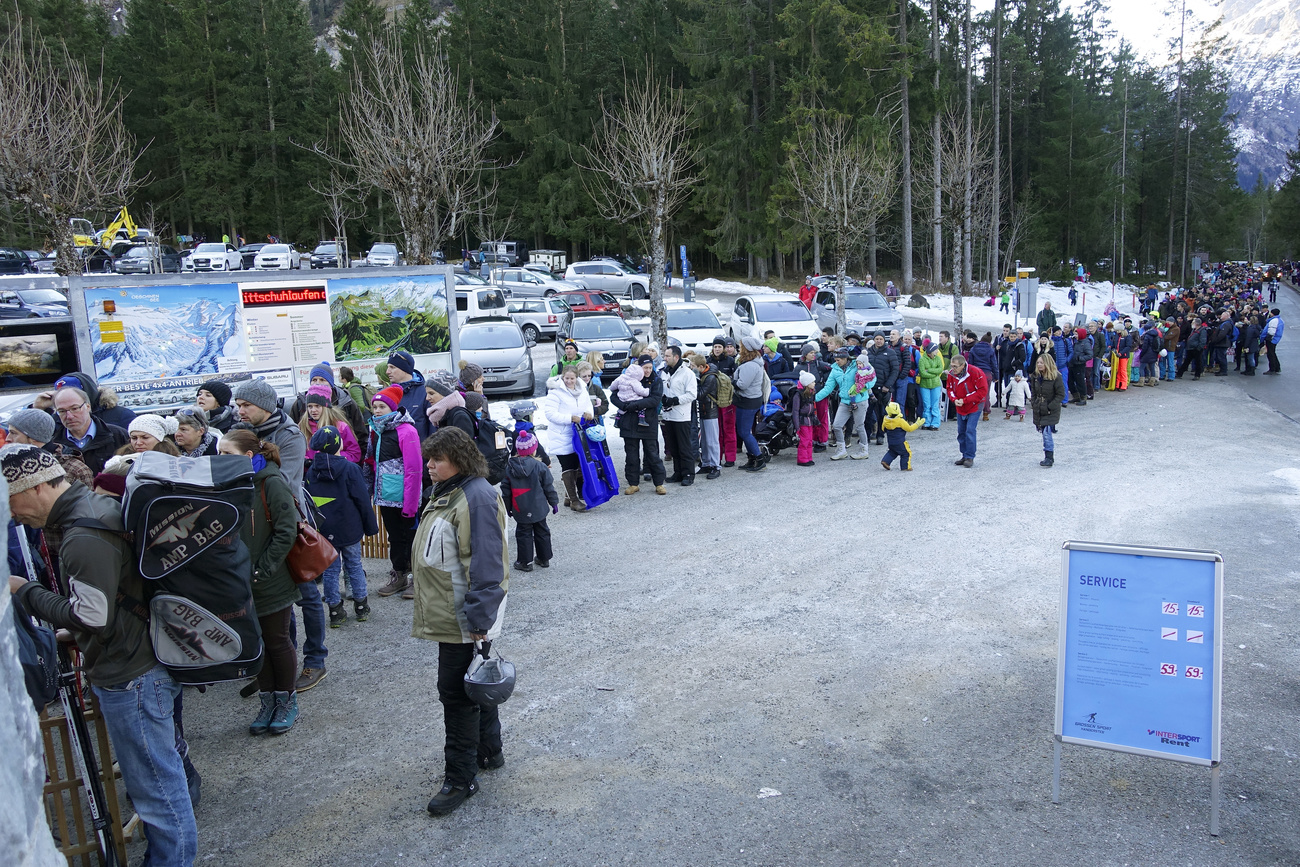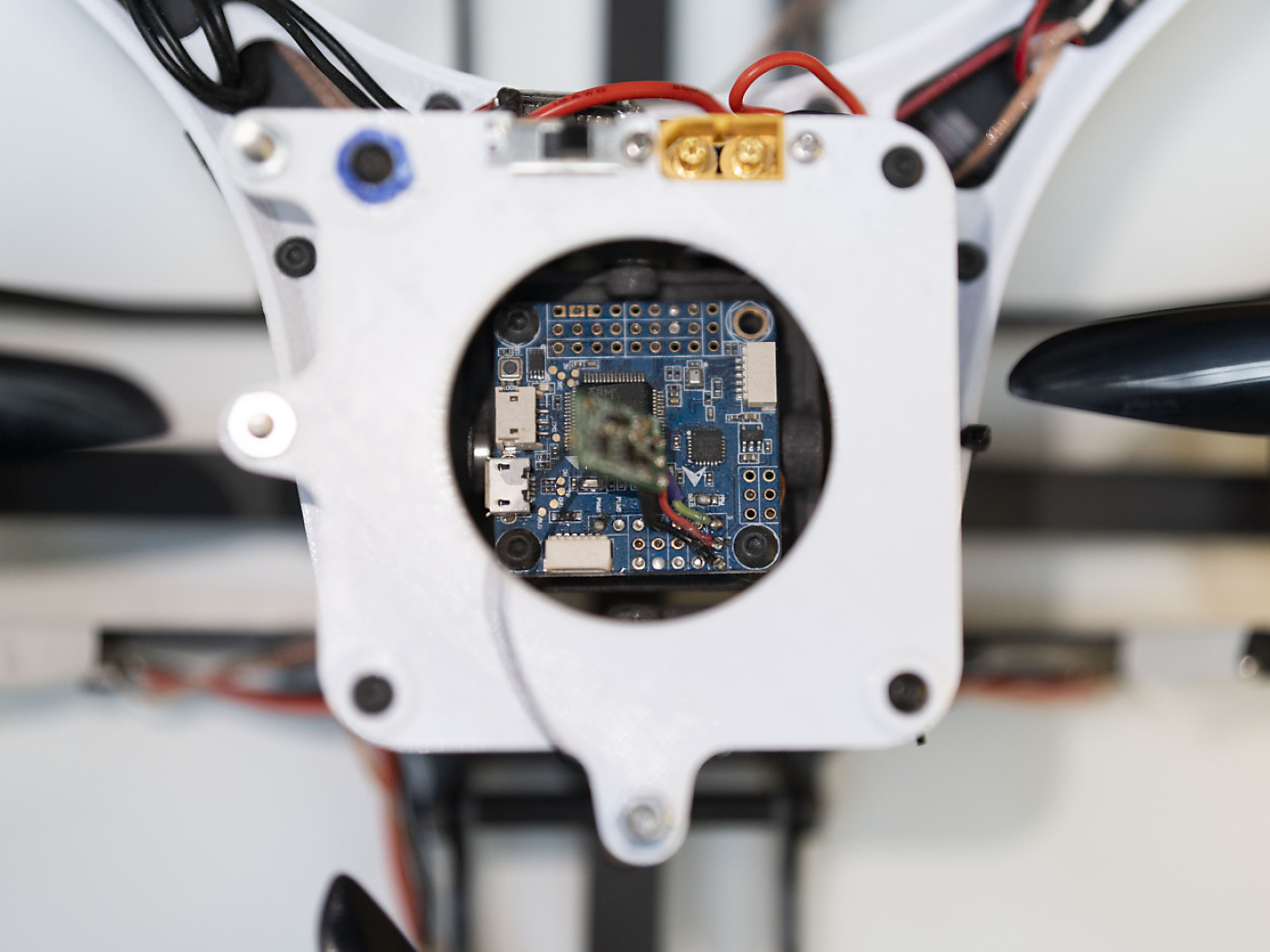Swiss e-ID on the brink of parliamentary approval

Swiss citizens could have access to an e-ID from 2026 as parliament has agreed to the idea in principle despite still having to iron out some minor issues.
+Get the most important news from Switzerland in your inbox
On Monday, the House of Representatives accepted amendments proposed by the Senate, and also made a number of technical clarifications.
+ What the Swiss parliament will debate in the winter session
The Federal Council’s proposal for an electronic identity (e-ID) was generally well received by parliament. A few modifications were added, notably to reinforce the protection of personal data.
The Senate also wanted the e-ID to be stored exclusively in a specially designed federal application (wallet). This solution will be temporary, explained Green parliamentarian Gerhard Andrey.
Private providers of such applications will be allowed to store and present the e-ID in future. These applications will have to be recognized by the Federal Department of Justice and Police. The Senate must still decide on these final technical modifications.
Free of charge
The new electronic identity (e-ID) issued by the Confederation will enable people to prove their identity simply, securely and quickly. Anyone holding a Swiss identity card or passport, or a residence permit for foreign nationals, will be able to apply for an e-ID, either online or at the passport office.

More
‘Electronic identity will make life easier for Swiss Abroad’
The Federal Council estimates that the e-ID could be available from 2026. It will be possible to use it on the Internet, for example, to apply for an extract from a criminal record, a driving license or a certificate of residence. But also in the physical world via a smartphone application, for example to prove your age when buying alcohol. The application will be free of charge.
In practical terms, anyone wishing to acquire an e-ID will need to download an application, which works like a wallet. They must then apply to Fedpol for an e-ID.
To do so, they will need to scan their identity card, passport or residence permit. A real-time filmed verification is then planned. After verification, Fedpol will issue an e-ID, which should take a few minutes. The data are the same as those on an ID card, which are already held by Fedpol, plus the social security number.
Not compulsory
All transactions with the Swiss Confederation that can be carried out virtually, with presentation of the e-ID, can continue to be carried out physically. At the same time, all Swiss authorities will be obliged to accept the e-ID as a valid identity document if they accept the principle of electronic proof of identity. Finally, these systems will meet international standards, so that the e-ID can also be used abroad.
Implementation costs up to 2028 amount to CHF182 million. Operating costs from 2029 onwards are estimated at around CHF25 million a year.
Translated from French by DeepL/mga
This news story has been written and carefully fact-checked by an external editorial team. At SWI swissinfo.ch we select the most relevant news for an international audience and use automatic translation tools such as DeepL to translate it into English. Providing you with automatically translated news gives us the time to write more in-depth articles.
If you want to know more about how we work, have a look here, if you want to learn more about how we use technology, click here, and if you have feedback on this news story please write to english@swissinfo.ch.

In compliance with the JTI standards
More: SWI swissinfo.ch certified by the Journalism Trust Initiative


















You can find an overview of ongoing debates with our journalists here . Please join us!
If you want to start a conversation about a topic raised in this article or want to report factual errors, email us at english@swissinfo.ch.